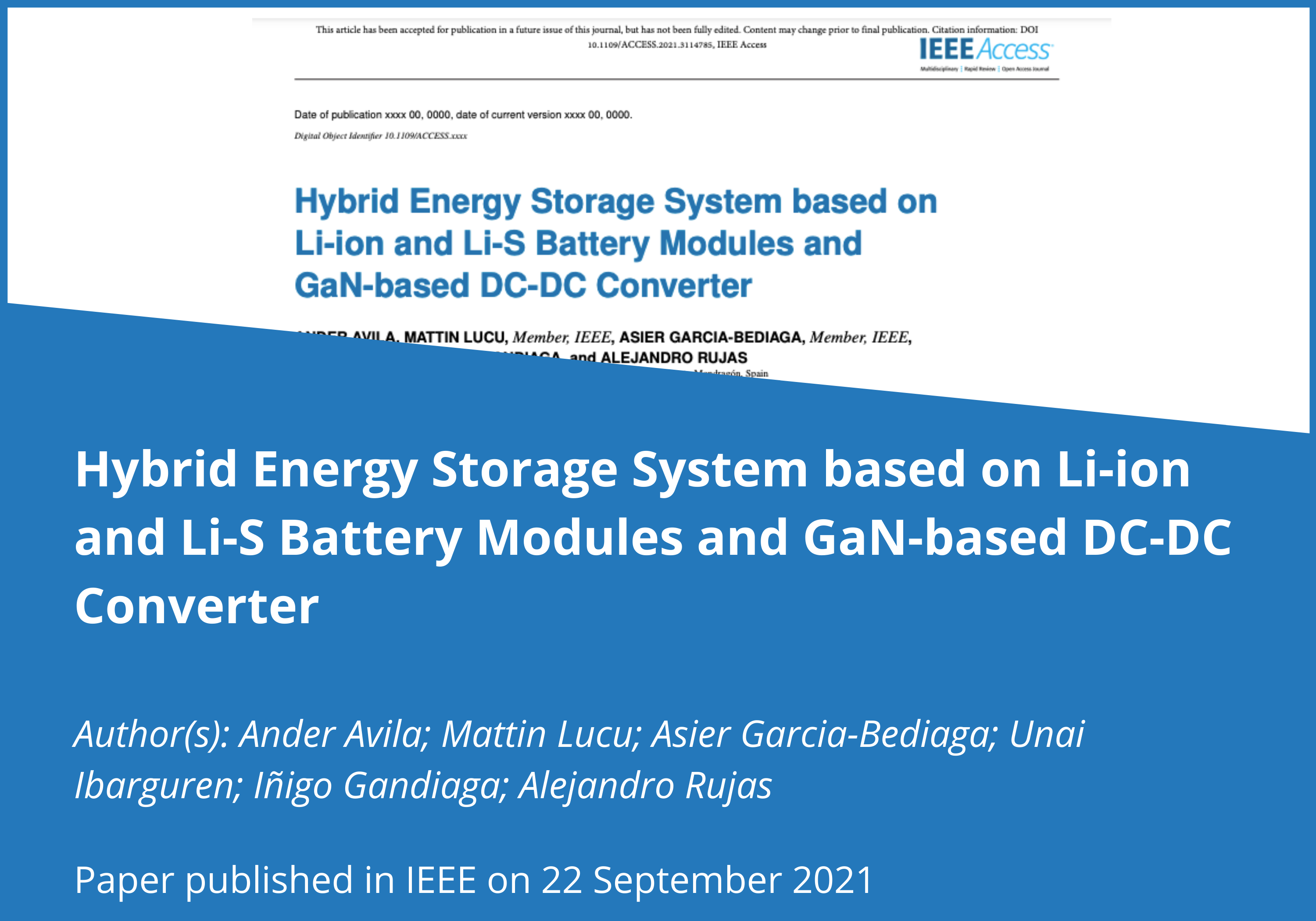Lithium-ion (Li-ion) batteries are still the best technology to power the Electric Vehicle (EV), due to their high power and energy density. However, the use of these batteries can be limited in cars with a high demand for peak power and very high energy density. One way to improve the performance of the Li-ion battery and reduce its weight is to associate this battery with another technology of higher specific energy as a second energy source, e.g. Lithium-sulfur (Li-S). The development of Hybrid Energy Storage Systems (HESSs) is a promising solution optimizing the energy management of EVs. In this paper, we present experimental results obtained with a high specific energy and power capability HESS prototype, composed of i) a Lithium-Titanate-Oxide battery to ensure high power capabilities, ii) a Li-S battery to improve specific energy, and iii) a power converter based on Gallium Nitride (GaN) devices to link both battery modules, minimizing at the same time system weight, volume and power losses. The developed GaN-based power converter achieves high efficiency (96.5%) operating at 300 kHz with a reduced size (0.4 L). Besides, the behavior of the developed HESS prototype is experimentally evaluated under standard automotive profiles, for different driving scenarios. The HESS prototype achieves an increase of energy density and specific energy of +5.56% and +28.21%, respectively, compared to a battery system composed only of Li-ion cells. The limitation of the developed system for automotive application are highlighted, and the critical research needs are clearly identified to accelerate the implementation of such systems on commercial EV solutions.


